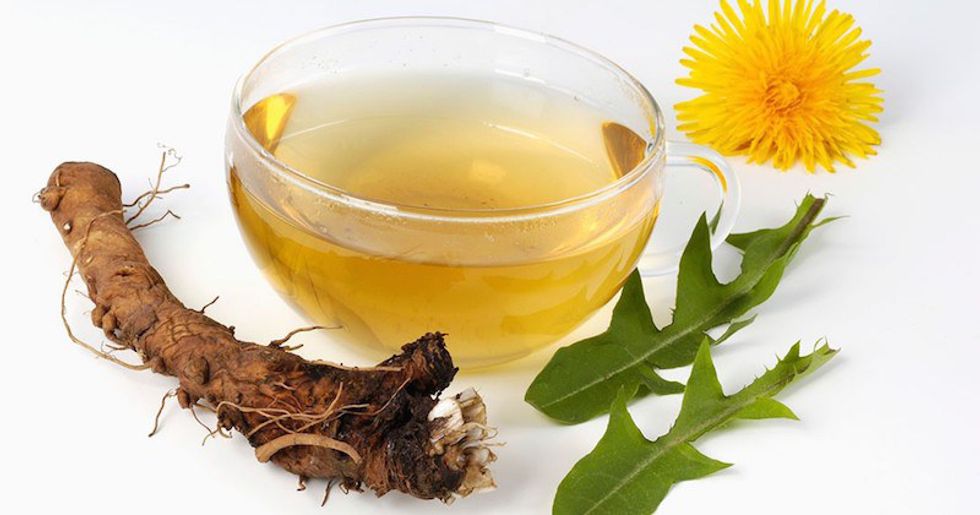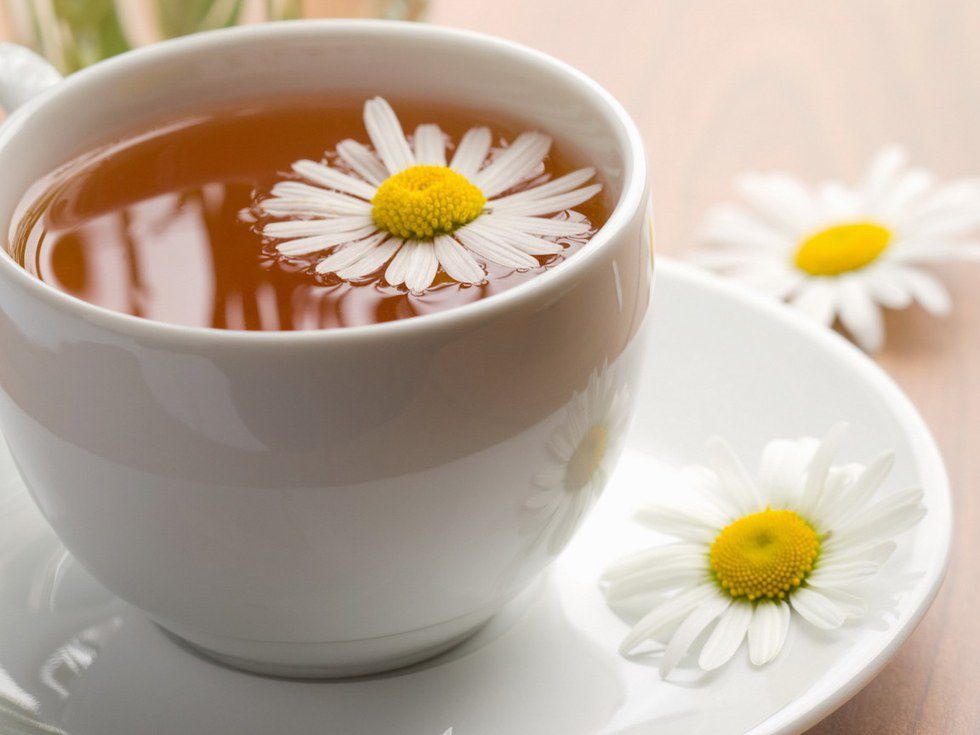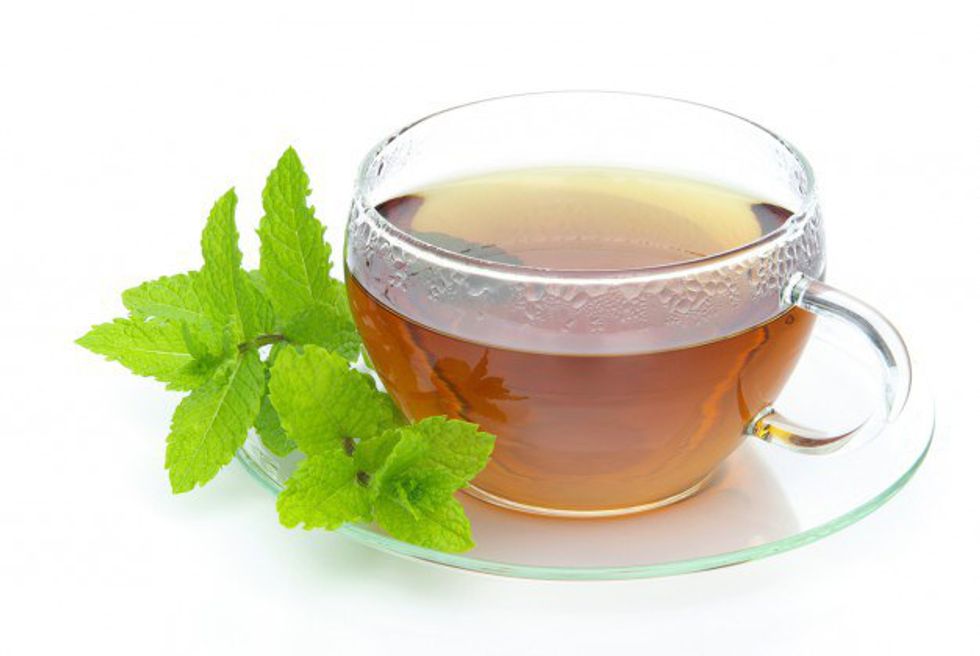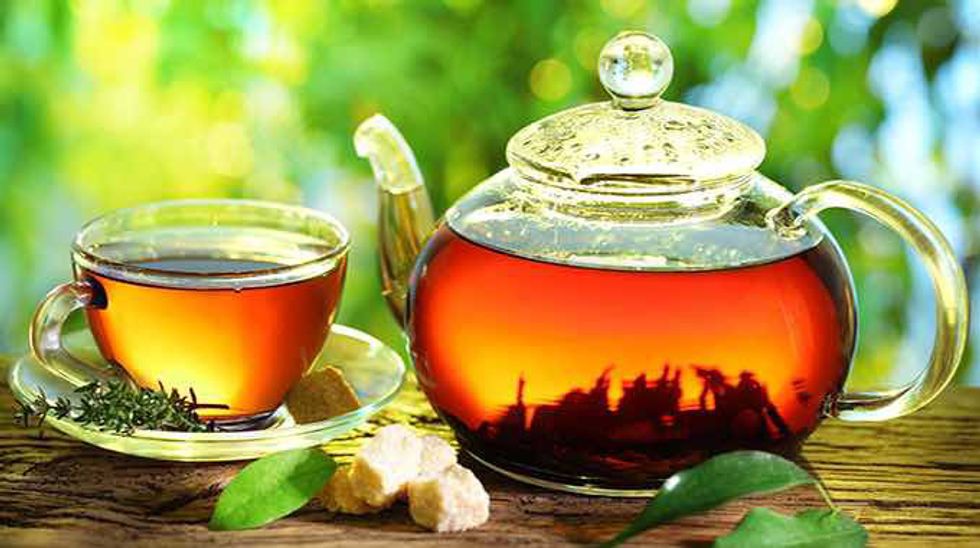Whether coffee or tea is better for you is an age old argument.
I'm not really here to start that argument, I enjoy both. However, if I'm being completely honest, I can say that I prefer coffee. I'm sorry (not really sorry). That's just how life is. Coffee is slightly superior to tea, at least when it comes to taste.
I like the taste of coffee so much that I used to drink it black, but now I can't drink coffee. In fact, I cannot have caffeine whatsoever. This is where all of you tea drinkers can start rejoicing. Well, the non-caffeinated tea drinkers. Because all I drink now is water and herbal tea. Take it as a small victory. I will still support coffee drinkers from the sidelines.
Not being able to have caffeine may sound like the start of a tragic story, but you can put your tiny violin away. Why? Because there are so many health benefits that come with drinking herbal tea.
Here are just a few teas along with their health benefits:
Dandelion Root Tea:
Dandelion is an herb with detoxifying properties. It has a very strong, bitter and woody taste. When I first started drinking it, I'd let a cup of it cool, and I would squeeze some lemon or lime to help abate the strong flavor. Now I actually enjoy the taste. However, if you're not a fan of the flavor when you drink it straight, lemon will definitely help.
Also, for you non-coffee drinkers, its been known to be used as a caffeine free coffee substitute.
Drinking dandelion root tea is a good way to detox and support the liver, which is the main reason I use it. It also serves as a way to support healthy functioning of the kidney, gallbladder and spleen.
Dandelion root tea has been said to help aid in weight loss. It also helps with bloating and stomach pain. It helps relieve inflammation of the joints as well.
Additionally, it has been known to help heal bruising and cure skin conditions.
Dandelion root tea can aid in digestion, and it is sometimes used for its laxative effects. Dandelion root actually helps to fight off bad bacteria because of the good bacteria it contains. It has even been known to fight off the bad bacteria that causes diarrhea.
I've heard that physically brewing the actual root yourself is how you get the most benefits from the tea. It makes sense, and it's probably true for many teas if you're getting it from the original source.
However, you can purchase dandelion root tea at your local Hannaford or Market Basket. I like the Organic Roasted Dandelion Root Tea by Traditional Medicinals. The recommended amount for dandelion root tea is two or three cups a day.
Chamomile:
Chamomile is similar to dandelion root tea, and it's categorized under the same family because it's an herb that comes from the daisy plant. Pretty cool, right?
Anyway, I'm sure most people have heard of chamomile before. It's a pretty popular tea. Personally, I'm not a huge fan of chamomile tea. It tastes soapy. Yeah, I know, way to sell it, but it's sort of an acquired taste—and sometimes good health doesn't always taste good.
I have been drinking chamomile because it contains antibacterial properties, and it's said to help you heal faster. Because of its antibacterial properties, I sometimes use chamomile tea bags on my eyes as a remedy for conjunctivitis.
Taste and conjunctivitis aside, chamomile has some other interesting health benefits, and it can be used to help some common ailments such as insomnia. If you have trouble sleeping, having chamomile half an hour to 45 minutes before bed may help you sleep better.
Chamomile can also help relieve stress. It can help with stomach problems. It has even been said to help with Irritable Bowel Syndrome.Peppermint:
Peppermint is a soothing herbal tea that comes from (you guessed it!) the leaves of a peppermint plant. I often use peppermint tea because it helps with stomach pain and bloating, but it has other health benefits as well.
It has been known to aid in weight loss because it helps curb one's appetite. Peppermint tea has been known to help with stress. It has also been said to have anti-fungal properties.
Some studies have suggested that drinking peppermint tea may even help with acne.
Pau D'arco Tea:
Pau D'arco tea is a tea that comes from the bark of a Pau D'arco tree.
I have yet to try this tea, but it's on my list of teas to try. Why? Because it's said to have very strong anti-fungal properties, so it's extremely good for fighting fungal infections.
I have also heard that it helps people who are struggling with skin certain skin conditions such as folliculitis, and it has cancer fighting properties.
Do you know the health benefits behind the teas you're drinking?

























